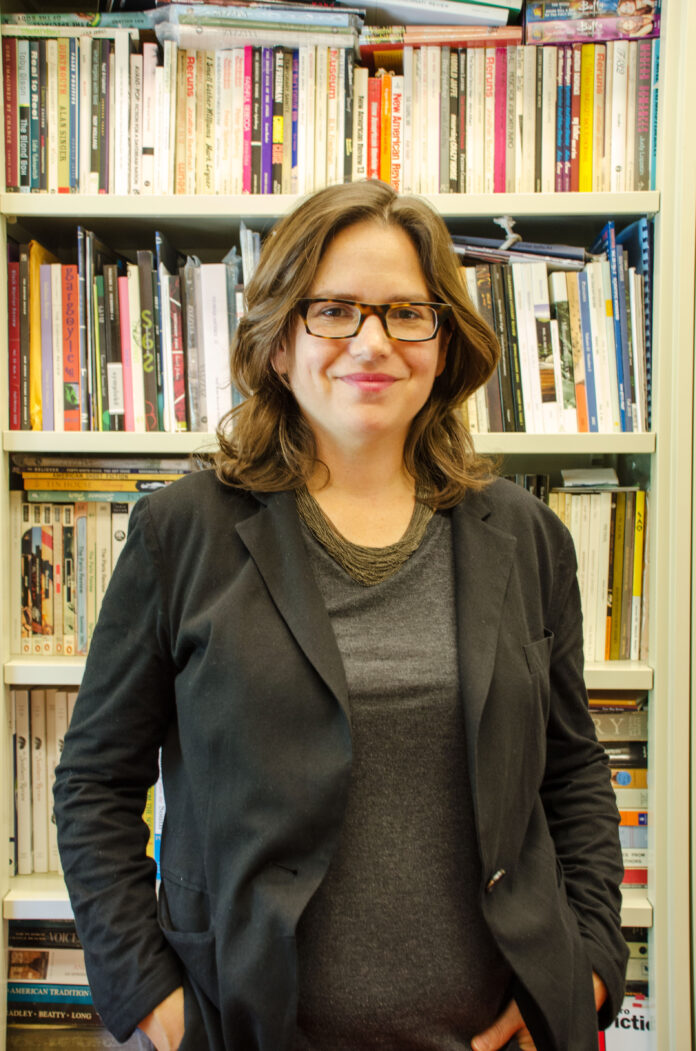The Creative Writing Program within the UC Davis English Department named Lucy Corin its new program director after Pam Houston, who built up the program for over a decade, stepped down from her directorship after Spring Quarter 2013. After returning from her year-long residency in Rome as the 2012 John Guare Fellow at the American Academy, Corin began her role as program director at the start of this school year.
Corin, author of the novel Everyday Psychokillers: A History for Girls and short story collection The Entire Predicament, released her newest short story collection One Hundred Apocalypses and Other Apocalypses in Aug. 2013 through McSweeney’s Publishing.
She was recently awarded the Rome Prize from the American Academy of Arts and Letters — a prize that’s been awarded to renowned authors Cormac McCarthy and Anne Sexton. The prize allowed Corin to spend a year in Rome, no-strings-attached, with other artists and scholars to work on her writing.
MUSE spoke with Corin about her recent experiences and her future as head of creative writing.
MUSE: What was your experience in Rome like?
Corin: There were 30 of us Rome prize-winners living together, which consisted of artists, composers, architects, historians, classicists and archaeologists. I got to be around all these people who are dedicated to the things they do in wildly different ways.
I’ve learned from the experience that when I have a clear calendar I get stronger in my writing. I can write better quality stuff for longer hours in the day. It was like building up muscles and lung capacity.
If I got inspired by being there as a place it was because of the way a lot of ex-patriot writers talk about, where you can see your own culture in contrast to the things that you’re experiencing. I always felt like a tourist, I was always on the outside of it.
Did you write anything substantial while you were there?
When I arrived in Rome, my newest collection of stories called One Hundred Apocalypses and Other Apocalypses was going through its final edit at the publisher. I did work on it while I was in Rome, but I was finishing it. What I was doing the bulk of my time in was working on a novel in progress called The Swank Hotel.
You’re the new head of the Creative Writing Program. How do you take on this role differently than previous creative writing director Pam Houston?
Pam Houston has been kind of my mentor here. In a lot of ways, we are on the same page. We want creative writing at UC Davis to be about students having a really safe space to explore in substantial and risky ways the idea of being an artist; to really try it on, and try it on with dedication and integrity.
We’re not here to train little writers, we’re here to get students to explore their own minds and to understand the history of literature in a way that helps them to be able to move through the world in an informed way and make really smart choices.
How do you approach teaching creative writing since it’s so open-ended?
I do believe in the workshop method. It means that my goal as a teacher is to guide a conversation in ways that I think are most penetrating, rather than to stand up and tell people what to do. I try to keep the discussion about the students trying to figure out how to talk meaningfully about art in progress. It’s all about the students distinguishing between what they think they’re writing and what they’re actually putting on paper.
What they read is also important. I try to have them read stories from all different cultures because they each have a different relationship with language. Instead of students coming in thinking “I’m going to learn how to craft a story,” I want to expose them to the diversity of what exists out there.
What has your experience as a professor at UC Davis been thus far?
The main thing about being here is that the writers are so great. My colleague writers are so different from one another and they challenge everything that I think every time I encounter them.
I also love working with undergraduate writers because they don’t have many preconceived notions about what writing should be like. Not having preconceived notions as to what something should be like (as you’re learning the different things it could be like) makes for the exciting intersections that make things like innovation happen.
I enjoy working with undergraduates because there are more opportunities for that kind of experience; for me to be there while a student is having the universe of what they don’t know collide with the universe of things they think they know.






